The Socialist Equality Party’s drive to gain ballot access in Wisconsin continued on Tuesday as campaigners visited the Master Lock factory in Milwaukee. Presidential candidate Jerry White and vice presidential candidate Phyllis Scherrer spoke with workers and neighborhood residents about conditions in the factory.
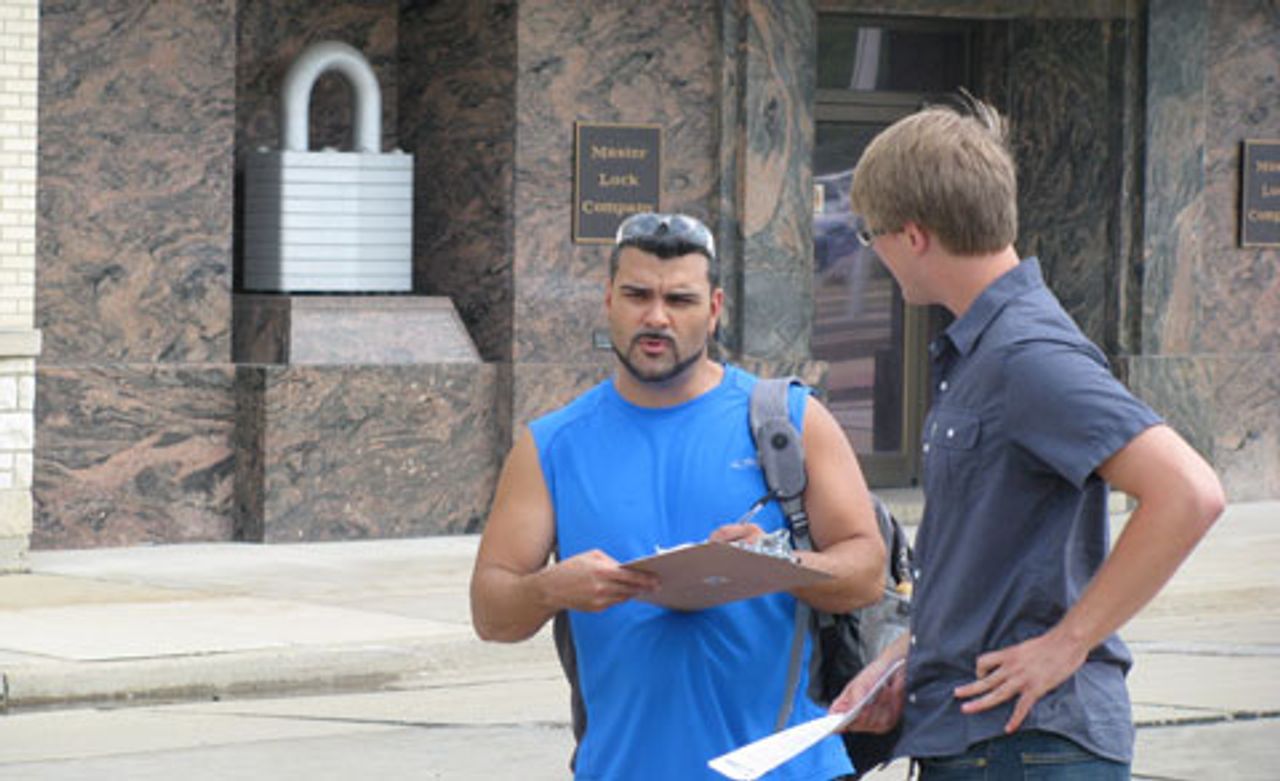 An SEP campaigner at the Master Lock plant
An SEP campaigner at the Master Lock plantLast February, President Obama visited Master Lock, a large-scale lock manufacturer. In his state-of-the-union address the month before, he hailed the company for “in-sourcing” jobs from in Mexico and China. The key to reviving manufacturing in the US, he said, was doing everything possible to bring labor costs in America in line with Third World levels.
“When Master Lock looked at their numbers,” the president said, “they saw that union workers in America could do the same job at competitive costs as nonunion workers in China.”
Obama’s specific mention of “union workers” in America was no accident. The president and his Democratic Party allies rely on the trade unions to impose wage and benefit cuts on their own members. The UAW, which “represents” the Master Lock workers, lauded Obama and Master Lock for bringing wages for new hires down to $11-15 per hour.
“We’re proud that Master Lock, a UAW-represented workplace, has decided it makes more business sense to bring jobs back to the United States,” said UAW President Bob King in the union’s official response to the State of the Union speech.
When the president visited Master Lock in February he re-stated his promise to further slash wages to near-poverty levels. “Our job as a nation is to do everything we can to make the decision to in-source more attractive for more companies. That’s our top priority…We’ve got to seize this moment of opportunity.”
By the “moment of opportunity” Obama means the devastatingly high level of unemployment in Milwaukee and other cites that has been used by the corporations to savagely slash wages. This has resulted in a further flow of profits to the top one percent, which has grabbed 93 percent of the income gains since the so-called recovery began.
The façade erected by Obama about Master Lock is a Potemkin Village. Workers and residents in the economically devastated neighborhoods around the factory told the SEP campaign team a starkly different story.
A worker with 28 years at the plant said, “There used to be 1,300 workers here. Now there are 380. We’re supposed to be happy with a handful of jobs? The ones hired are making $3 less an hour and instead of having to pay 10 percent of their health care costs they are paying 25 percent. The UAW has gone along with all of this.”
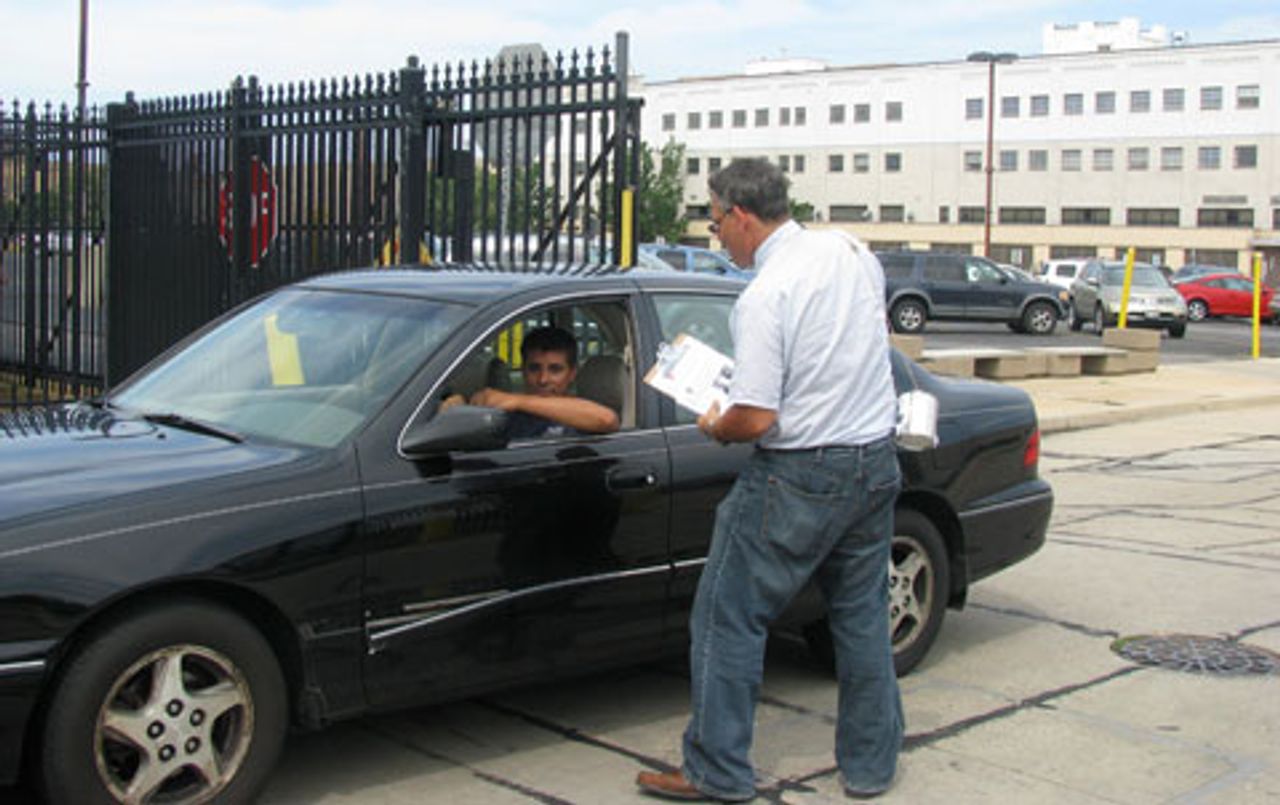 Jerry White speaking to a Master Lock worker at the plant gate
Jerry White speaking to a Master Lock worker at the plant gateEbony Mayfield, a worker without a job for 8 months, said, “Obama came here and said Master Lock was hiring. People thought the company was opening its doors. But when I came here they said there were no jobs. It was all a scam. Obama said they were opening up all these positions but in the end they didn’t hire anyone.”
Ebony continued, “When I first came here in 1995 there were decent jobs. Now all you can get is a temporary one making $9 an hour. No one in the state of Wisconsin is hiring permanent workers. [Republican Governor Scott] Walker, Obama, they’re all the same. I don’t trust them. They help the rich but they don’t do anything for the poor.
 Ebony Mayfield
Ebony Mayfield“If you sign up for unemployment they say you haven’t worked enough. I have no income and I’m taking care of a child. I want to work but I’m on the verge of homelessness.”
Taylor, a 27-year-old worker at a nearby factory who was picking up a friend at the plant, said, “It’s hard here, there are no jobs. Maybe there are a few at Master Lock. But what are these new jobs paying? I make $10 an hour and I should be making $18 an hour. They’re paying us half the wages.”
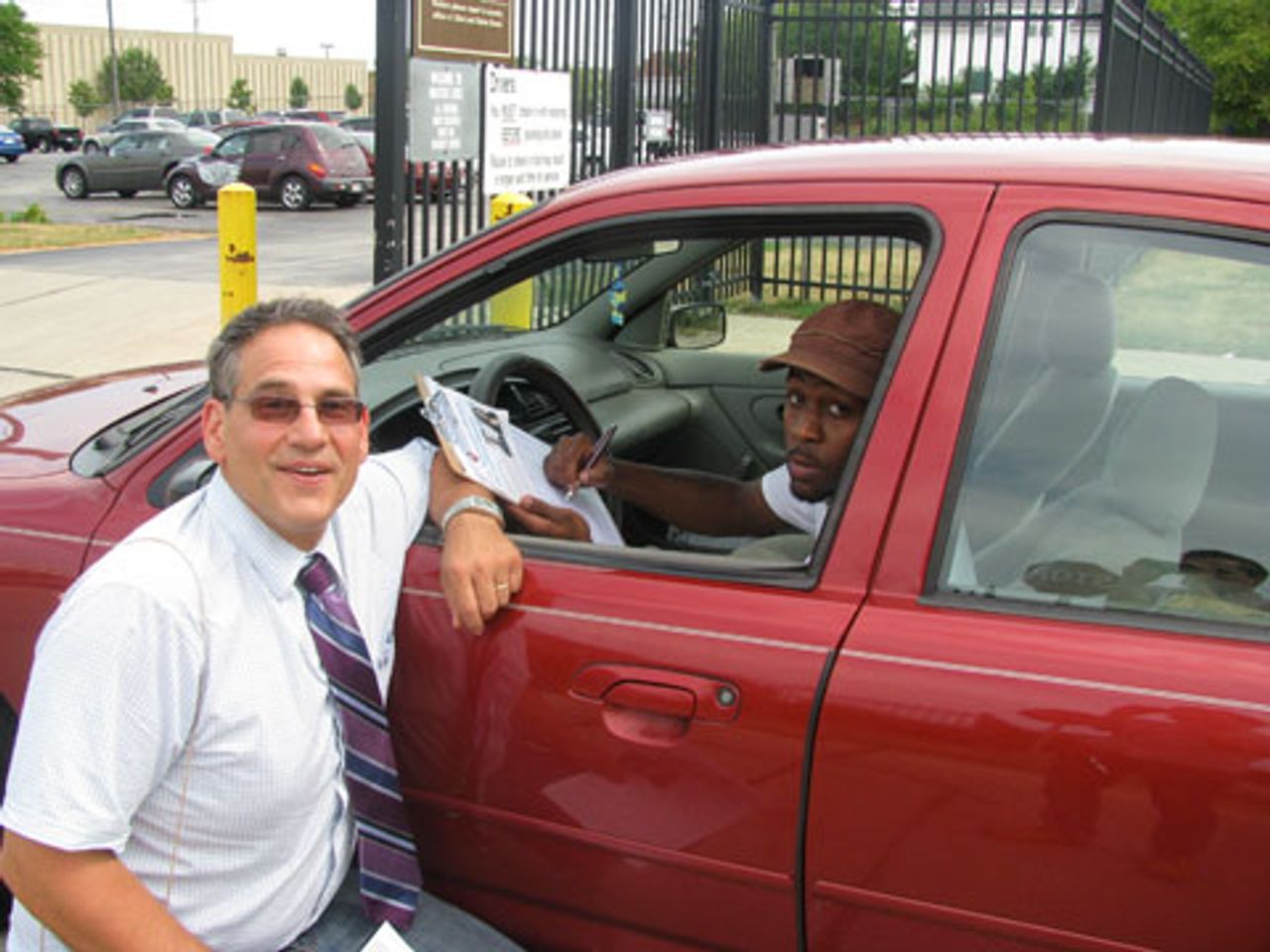 White and Taylor
White and TaylorAsked if there was a union at his plant, Taylor said, “There is one but I don’t know the name of it. I couldn’t care less, they don’t do a damn thing for us.”
Lynn, who has eight years of seniority at Master Lock, came in two years after the two-tier wage scale was established. She told vice presidential candidate Phyllis Scherrer, “The two-tier wage scale is unfair. How can you stand next to someone doing the same thing that you do and get paid half as much? If you are a newer two-tier worker, your health insurance is $46 a week. If you are tier-one it is $18.63 a week. That’s also unfair.”
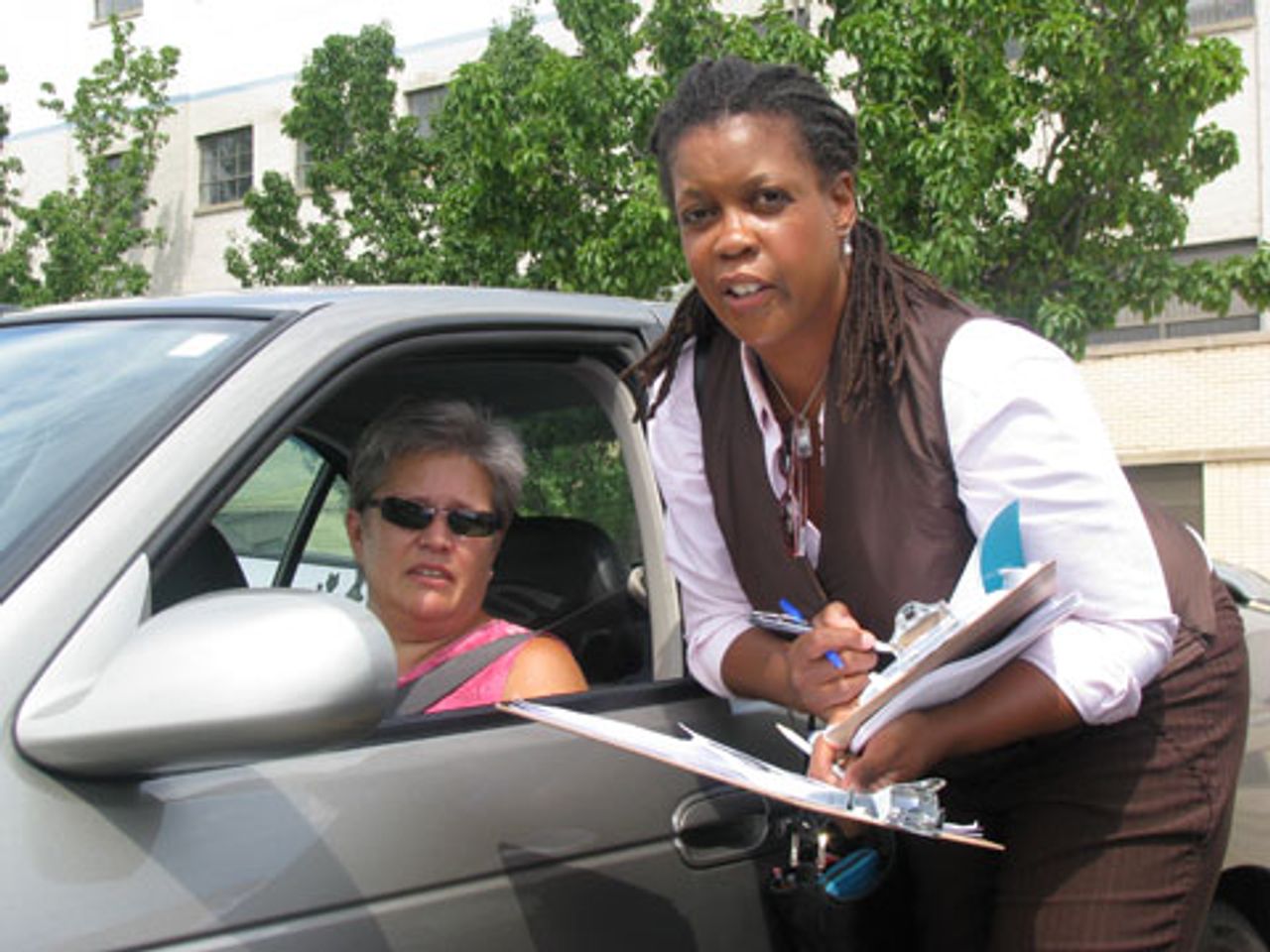 Scherrer with Lynn
Scherrer with LynnAnother young worker told SEP campaigners that she made only $11 an hour as a temporary worker. She expressed frustration with wage and budget cuts, and explained that it is difficult to make ends meet on such a low wage.
The SEP campaign team also spoke to residents in the neighborhood surrounding the plant. The area is over 75 percent African-American with an average per capita income of $11,000. Median household income is $32,000, and 80 percent of the homes in the area are valued at under $100,000. Overall, the area has one of the highest poverty rates in the state, at 37 percent. Nearby zip codes have poverty rates as high as 70 percent.
“Everybody is going into the hole, but the rich people are the only ones that are going to come out,” said Leroy, a retired county worker with 21 years of experience. “I don’t care if it’s Obama, or no-bama, or anything-bama, it doesn’t matter because they aren’t doing anything.”
Leroy explained that recent budget cuts have made it too expensive for him to seek medical attention, which he needs. In the past, “I got medical supplies for $34 a month. Now, it’s $100 a month. Visits [to the doctor] cost $300.”
When asked how one could afford such high costs, he replied, “You don’t. I don’t go to the doctor’s office anymore.”
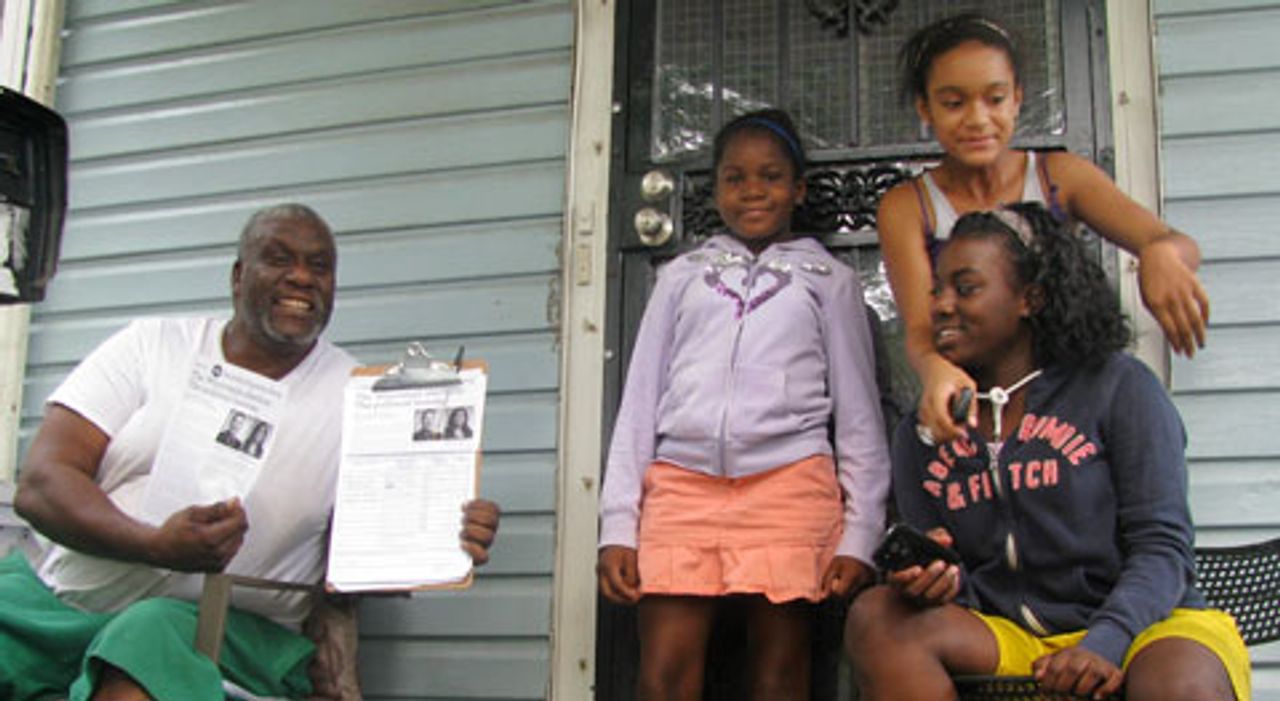 Leroy with his family
Leroy with his familyLeroy signed the SEP’s petition to put White and Scherrer on the general election ballot.
“If you are helping working people, then I’ll sign,” he said.
Another young worker told the SEP, “I still can’t find a job, it’s hard.”
Other neighborhood residents expressed extreme dissatisfaction with Obama’s visit. They explained that most residents hoped the visit would result in positive economic change, though conditions have only deteriorated further.
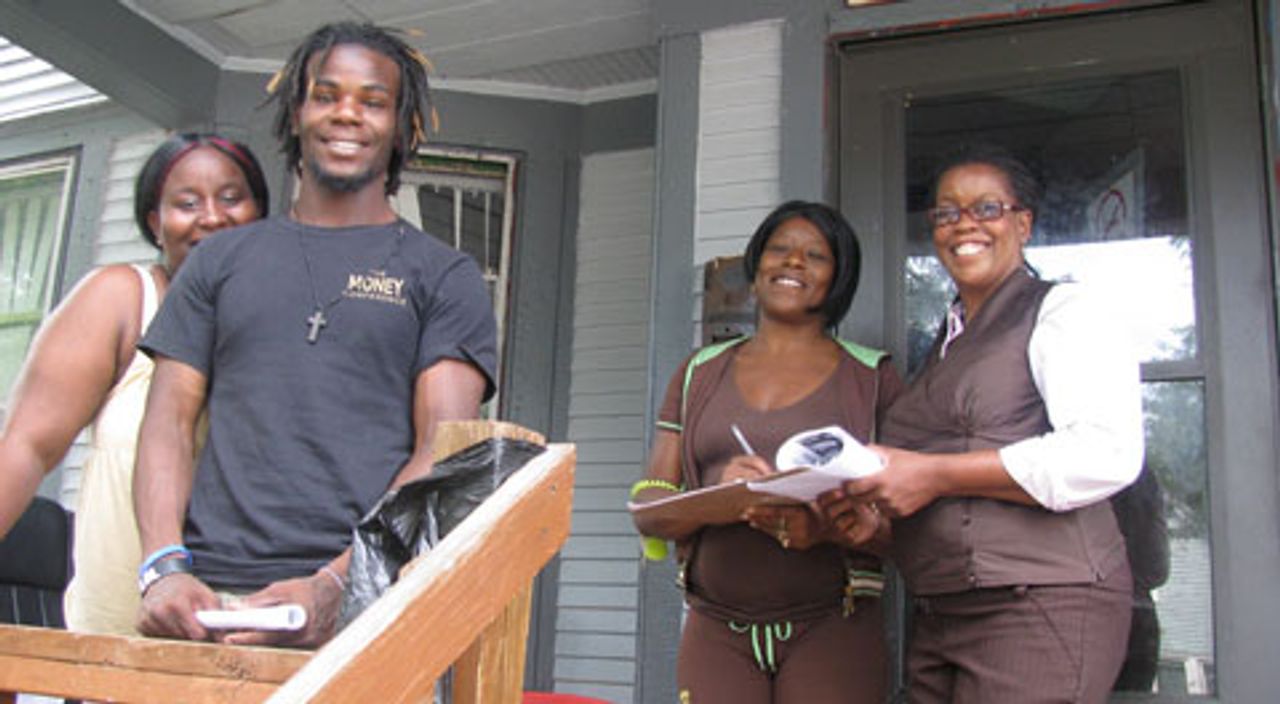 Scherrer with residents
Scherrer with residentsWhen the president made his visit, residents said that the area was effectively shut down by the Secret Service, which positioned sniper sharpshooters on rooftops. Residents were not allowed into the plant to listen to the president’s address, nor were they given the opportunity to make appeals to the president for increased funding for social programs, which they say the neighborhood needs. Some carried signs with pleas for help and stood along the roadside as the president’s motorcade drove past.
SEP campaigners collected a signature from every adult they spoke with in the neighborhood, and some teenagers expressed frustration that they were too young to sign.
